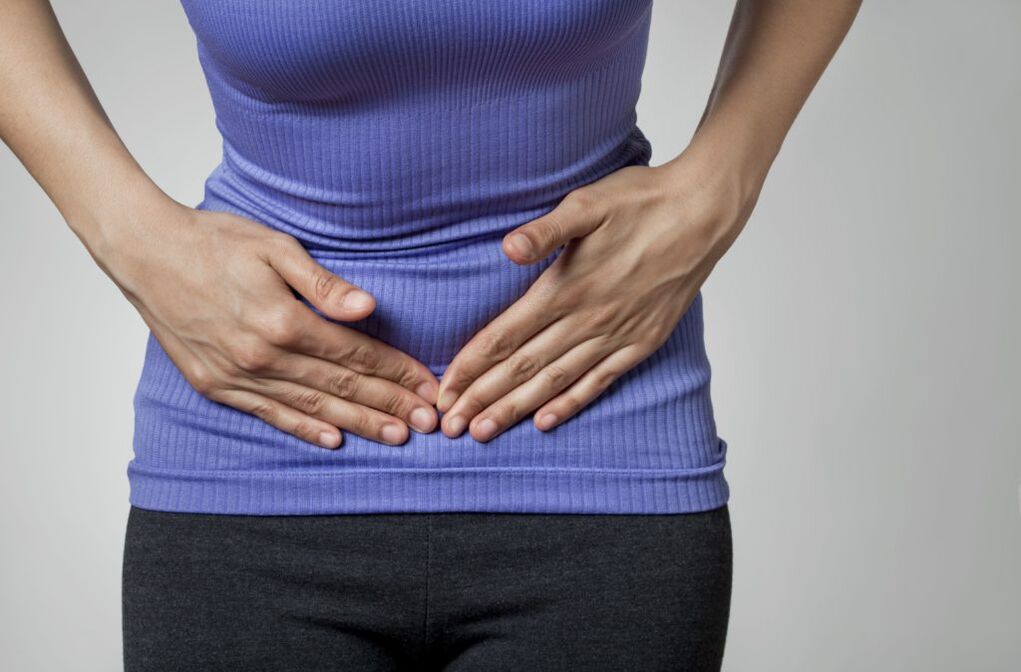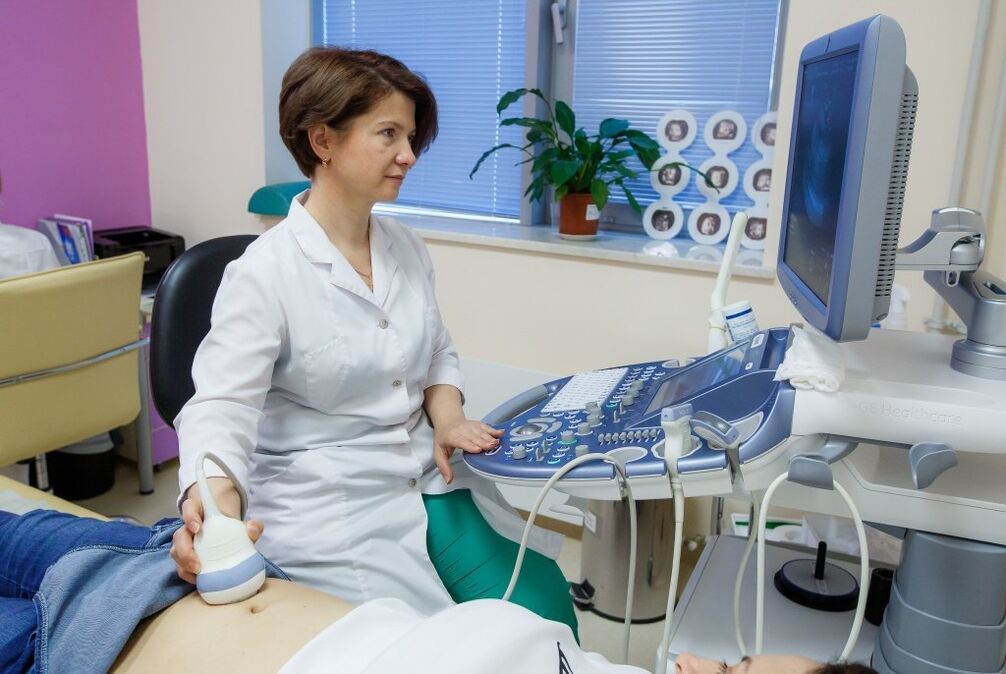In women, prostatitis is not a joke, but a colloquial name for inflammation of the vestibular glands. These glands are also called Skene glands, and their inflammation - inflammation of the skin - manifests itself in men with the same symptoms as prostatitis. What are the features and dangers of this disease?
Do women have prostatitis?

The insidiousness of the pathology is that it is poorly detected by doctors and is rare.
Women get prostatitis, but this disease is called dermatitis. In this pathology, the inflamed glands are located just below the urethra and are composed of sensitive tissue.
Skeletal glands are thought to be rudimentary prostate glands that form in the embryo before the genitals are visible. Simply put, the Skene glands are a kind of cavity that develops into a full-fledged prostate gland in the male fetus and remains in the female fetus during infancy.
Interestingly, these glands are able to produce a specific secretion that is similar to the secretion of the prostate gland in men. In addition, the most important tumor marker, the PSA antigen, can be found in this fluid.
It's interesting!Reactive orgasm in some women is the result of the activity of the skull glands.
Skinitis is rare. The problem is that female prostatitis is difficult to diagnose, often misdiagnosed, so there are no accurate statistics on the prevalence of the disease.
Causes of skinitis
Most women are not even aware of the presence of these glands near the urethra, but when they become inflamed, men develop acute symptoms reminiscent of the symptoms of prostatitis.
Skinitis is most often caused by an infection of the glands. The main causes of the disease:
- damage to the urethra;
- lack of hygiene;
- glandular infection due to the spread of infection in other diseases of the genital organs.
Most often, skin inflammation is caused by opportunistic microorganisms living in the female body. They can enter the glands during urination or urine from the vagina. Under normal circumstances, such microorganisms do not cause an inflammatory process, but female prostatitis occurs when the skull glands or urethra are damaged. This is due to the reduction of local immunity.
Skinitis can be allergic in nature. The use of non-standard intimate hygiene products can cause an allergic reaction and a decrease in local immunity, which increases the risk of infection of the glands.
Another reason for the development of skin inflammation in women is damage to the urethra as a result of surgery or rough contact. When sand passes through the urethra, the opening of the urethra can also damage the opening of the urethra.
In a woman, "prostatitis" is associated with irregular sex life. Frequent change of sexual partners and neglect of barrier contraception increase the risk of developing urogenital infections.
A factor that increases the risk of developing this disease is a general decrease in immunity. Skinitis can be associated with the recent exacerbation of severe infectious diseases, hypothermia, chronic diseases.
Symptoms of the disease

With pathology, constant weakness and "weakness" is felt throughout the body.
Once you know if a woman has prostatitis, you need to know how the skin inflammation manifests itself. The disease is called "female prostatitis" due to symptoms similar to inflammation of the prostate gland, mainly in men. Symptoms of ejaculation include:
- frequent urination;
- urination in small portions;
- pain and soreness in the urethra when using the toilet;
- pain during sexual intercourse;
- increased body temperature;
- spasms in the bladder area;
- general disorder, loss of strength.
Skinitis is similar to cystitis in women in many ways. With this disease, the urge to urinate is always felt, but this need can not be fully met. Urine is excreted in small portions, which is accompanied by severe discomfort. The feeling of fullness of the bladder persists even when using the bathroom.
You can distinguish skinitis from other diseases of the genitourinary system, which have similar symptoms to the presence of pain during sexual intercourse.
There is no intense heat with skinitis, but body temperature can rise to 37, 5-38 degrees.
Why is prostatitis dangerous in women?
Even after understanding the features of the disease, patients ask whether prostatitis is dangerous for women. This disease can lead to dangerous complications, so timely diagnosis and treatment are required.
Possible complications of skinitis include:
- glandular abscess;
- cystic neoplasms;
- secondary infertility;
- adhesions in the small pelvis;
- deformation of the area where the inflammatory glands are located;
- spread of the infection to other organs of the lower pelvis.
The disease is contagious and can be caused by pyogenic bacteria. In severe cases, the inflammation can turn into a glandular abscess with severe symptoms and requiring surgical treatment. Independent rupture of an abscess is potentially dangerous with the development of sepsis (blood poisoning).
The infection can spread to all organs of the small pelvis through the bloodstream. There is also a risk of upward spread of agents that cause disease with subsequent kidney infection. In addition, with a widespread infection, a woman can infect a partner through unprotected contact. In men, bacterial urethritis can turn into prostatitis.
Diagnostics

Ultrasound is performed to make sure there are no other diseases.
Once you understand whether a woman has prostatitis and what signs and symptoms to suspect skinitis, it is recommended not to self-medicate, but to consult a doctor immediately.
The main problem of dermatitis is a complex diagnosis. Depending on the location of the glands, their inflammation is accompanied by symptoms of inflammation of the bladder or urethral mucosa, so it is often misdiagnosed and the wrong treatment regimen is prescribed.
The skull is located in a hard-to-reach area, so it is impossible to fully examine it. In this regard, the diagnosis is made with the exception of other diseases with similar symptoms. Required exams:
- Ultrasound of the bladder to rule out cystitis;
- Ultrasound of the uterus and appendages to rule out inflammation;
- smear from the cervical canal;
- bacterial culture from the cervix;
- general and biochemical analysis of urine;
- a patch from the urethra.
Treatment of skin inflammation is prescribed after the exclusion of other diseases. Often the most informative diagnostic method is a urine test that detects pathogenic microorganisms.
Treatment features
Conservative treatment is applied with peeling of the skin. Therapy involves taking drugs from the following groups:
- antibiotics to eliminate the infection;
- anti-inflammatory drugs used in urology;
- antispasmodics to reduce pain;
- immunomodulators.
Usually, broad-spectrum antibiotics or antibacterial drugs used in the treatment of cystitis are prescribed. Because it is often impossible to pinpoint the cause of the disease, a doctor may prescribe several drugs in this group at once. Third-generation cephalosporins have proven themselves.
Acute symptoms disappear one day after the start of antibiotic treatment. However, it is important to take the medication in a course determined individually by your doctor.
It is recommended to use antispasmodics to relieve pain. Simple analgesics are ineffective because the pain is associated with spasms of the urethra and bladder.
In addition, herbal anti-inflammatory drugs used in the treatment of cystitis and kidney disease are prescribed. These drugs reduce the inflammatory process, normalize the urinary process and facilitate the overall well-being in various diseases of the urinary tract.
Immunomodulators are required. They use both drugs and tonics to prevent diseases of the genitourinary system, such as echinacea purpurea extract.
Preventive measures
Once you understand how to treat skinitis, you need to pay attention to important preventive measures. The disease is similar to cystitis - once you get sick, the chances of relapse remain for many years. To prevent this, you need:
- to observe personal hygiene;
- use barrier methods of contraception;
- having a regular sexual partner;
- strengthen immunity.
When the first alarming symptoms appear, you should immediately make an appointment with a gynecologist and urologist. Self-medication for skinitis is dangerous with chronic inflammation.
























